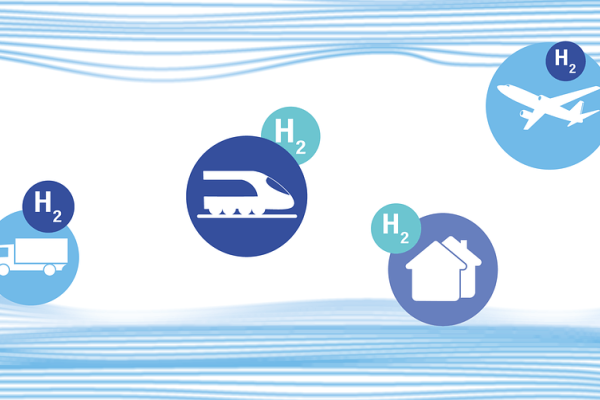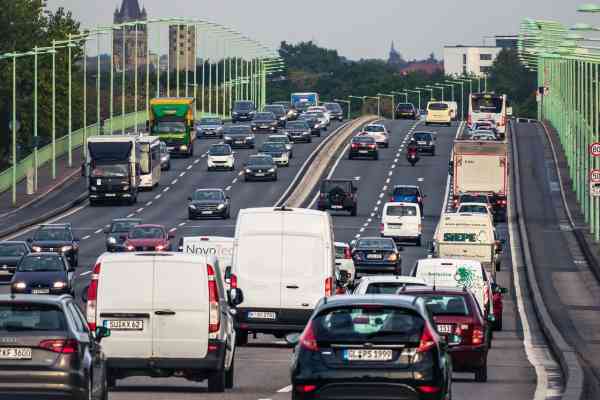April 13th, 2020 | 11:03 CEST
BMW, Daimler, Volkswagen and dynaCERT - the cleanest diesel ever
In a recent vehicle test, experts examined the BMW 520d, Mercedes-Benz GLE 350 and VW Golf 2.0 TDI models in city traffic, on country roads and autobahns. The magazine 'Auto, Motor und Sport' and the British testing specialist Emissions Analytics have tested the emission of nitrogen oxide (NOx) in road traffic under real conditions and the results are surprisingly good. The advantages of electric mobility are fading.
time to read: 2 minutes
|
Author:
Mario Hose
ISIN:
DE0007100000 , DE0007664039 , CA26780A1084 , DE0005190003
Table of contents:

"[...] We can convert buses and trucks to be completely climate neutral. In doing so, we take a modular and incremental approach. That means we can work with all current vehicle types and respond to new technology and innovation [...]" Dirk Graszt, CEO, Clean Logistics SE
Author
Mario Hose
Born and raised in Hannover, Lower Saxony follows social and economic developments around the globe. As a passionate entrepreneur and columnist he explains and compares the most diverse business models as well as markets for interested stock traders.
Tag cloud
Shares cloud
New exhaust emission standard Euro 6d-Temp
When the diesel scandal became known in 2015, tests of vehicles in the laboratory under optimized conditions were the required common practice for car manufacturers. In road traffic and under real conditions, however, emissions of up to 1,000 mg NOx per kilometer were still measured in Euro 6 diesel engines. Since September 2019, even stricter rules have been in force for new diesel engines with Euro 6d-Temp, because since then, vehicles may only emit 168 mg NOx per kilometer.
Diesel engines almost without NOx emissions
The engineers of the German carmakers were able to shine with their results when testing the three vehicles BMW 520d, Mercedes-Benz GLE 350 and VW Golf 2.0 TDI in road traffic. According to the report, the BMW 520d measured only 29 mg NOx per kilometre. The Golf model of the Wolfsburg car manufacturer only measured 20 mg NOx. The Mercedes SUV GLE achieved the best result in hybrid operation with 16 mg NOx per kilometer. In pure diesel mode, the vehicle with 306 hp and 2.0 liters of engine capacity achieved 22 mg NOx per kilometer, according to the testers. The measurement also showed that the particulate emissions in terms of the number of particles and their mass were far below the limit requirements for the three vehicles.
Advantages of electric cars are fading
These results give hope for the German automotive industry, whose strength is the development of combustion engines. These new results should send a signal to politics and industry. Many jobs in Germany depend on the combustion engine. The change to battery cars is progressing only slowly and with subsidies from tax payers' money.
It remains to be seen whether the current Corona Crisis will spur interest in electric cars and expensive experiments. There is currently a lack of attractive models and the necessary infrastructure to charge the batteries. Furthermore, the origin of the charging current often distorts the ecological balance of electric cars.
dynaCERT makes diesel green
The advantage of diesel engines is the comparatively low fuel consumption. There are currently around one billion diesel engines in use worldwide. In addition to vehicles and heavy equipment, engines of this type are also used in generators, locomotives, trains and ships. A huge market for dynaCERT and the innovative HydraGEN equipment for retrofitting. HydraGEN is a hydrogen technology that can be retrofitted to existing diesel engines of any kind.
The advantage is that fuel consumption can be reduced by up to 20%. Furthermore, the emission of NOx is reduced by up to 88%. A reduction in particulate matter of up to 55% and in CO2 of up to 10% has also been measured. The purchase of HydraGEN usually pays for itself within less than one year. Among the well-known investors of the listed company are the Canadian billionaire Eric Sprott and German logistics expert Dr. Jörg Mosolf.
Conflict of interest
Pursuant to §85 of the German Securities Trading Act (WpHG), we point out that Apaton Finance GmbH as well as partners, authors or employees of Apaton Finance GmbH (hereinafter referred to as "Relevant Persons") may in the future hold shares or other financial instruments of the mentioned companies or will bet on rising or falling on rising or falling prices and therefore a conflict of interest may arise in the future. conflict of interest may arise in the future. The Relevant Persons reserve the shares or other financial instruments of the company at any time (hereinafter referred to as the company at any time (hereinafter referred to as a "Transaction"). "Transaction"). Transactions may under certain circumstances influence the respective price of the shares or other financial instruments of the of the Company.
Furthermore, Apaton Finance GmbH reserves the right to enter into future relationships with the company or with third parties in relation to reports on the company. with regard to reports on the company, which are published within the scope of the Apaton Finance GmbH as well as in the social media, on partner sites or in e-mails, on partner sites or in e-mails. The above references to existing conflicts of interest apply apply to all types and forms of publication used by Apaton Finance GmbH uses for publications on companies.
Risk notice
Apaton Finance GmbH offers editors, agencies and companies the opportunity to publish commentaries, interviews, summaries, news and etc. on news.financial. These contents serve information for readers and does not constitute a call to action or recommendations, neither explicitly nor implicitly. implicitly, they are to be understood as an assurance of possible price be understood. The contents do not replace individual professional investment advice and do not constitute an offer to sell the share(s) offer to sell the share(s) or other financial instrument(s) in question, nor is it an nor an invitation to buy or sell such.
The content is expressly not a financial analysis, but rather financial analysis, but rather journalistic or advertising texts. Readers or users who make investment decisions or carry out transactions on the basis decisions or transactions on the basis of the information provided here act completely at their own risk. There is no contractual relationship between between Apaton Finance GmbH and its readers or the users of its offers. users of its offers, as our information only refers to the company and not to the company, but not to the investment decision of the reader or user. or user.
The acquisition of financial instruments entails high risks that can lead to the total loss of the capital invested. The information published by Apaton Finance GmbH and its authors are based on careful research on careful research, nevertheless no liability for financial losses financial losses or a content guarantee for topicality, correctness, adequacy and completeness of the contents offered here. contents offered here. Please also note our Terms of use.




